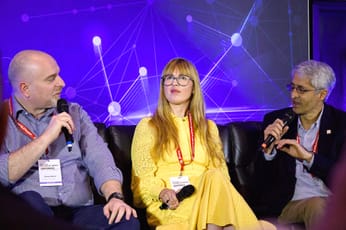#newsrw - Heather Brooke on the UK's culture of secrecy

*Heather Brooke is kicking off news:rewired with a talk on data journalism, based on her campaigning work for more data transparency from UK government. *
She’s glad to see so many people interested in data journalism – used to be just three of them.
Best known as the person who did the legwork for the MPs expenses story.
The main problem with doing journalism in the UK is access to data. In the US, where she started her career, they had access to information from public records. When she covered the state legislature. She’d go to the clerks’ office, and ask for all the representatives’ expense reports.
It used to be illegal in the UK for fire departments to disclose the details of fire inspections. Arrest reports are not public documents. A lot of court information is hard to get. A lot of what you can get is anonymous. . Control of data means control of how the public perceive the story – and that’s why authorities are so reluctant to let go.
So, one of the reasons that journalists don’t “get” data journalism is the lack of availability of meaningful data sets. Brooke started the expenses investigation as much to get a full “feed” of the expenses information as anything else. Data journalism isn’t just about learning to use Excel spreadsheets, it’s about having something to put into those spreadsheets – and that’s where we should concentrate.
What is the role of a journalist in the digital age, when people have so much information they’re exposed to, when they have so much to deal with?
Journalism has one unique selling point, on reason they’d come to us rather than reading one of a million blogs. We have skills to sift through mountains of information for what is (a) important and (b) true. We are information managers. A time-strapped and attention-strapped public needs people to signpost what is important – that’s what we can bring to the table.
What is true? When a politician claims crime has gone down, you can only test that is you can cross-check it against the data. You need the data, and you need to know how it was collected. Access to time and money to do this is they only thing that marks a professional journalist out from a blogger.
Q&A
Q from someone at the BBC College of Journalism about justified exceptions to the Freedom of information act. Brooke doesn’t like the question. We alway think about the costs and dangers of making information public. We never talk about the costs and dangers of keeping it secret.
Q from The Guardian about wether the Data Protection Act act has been a problem. Brooke seems to agree, saying that it’s been better at protecting the “privacy” of big organisations that private individuals.
Sign up for e-mail updates
Join the newsletter to receive the latest posts in your inbox.








